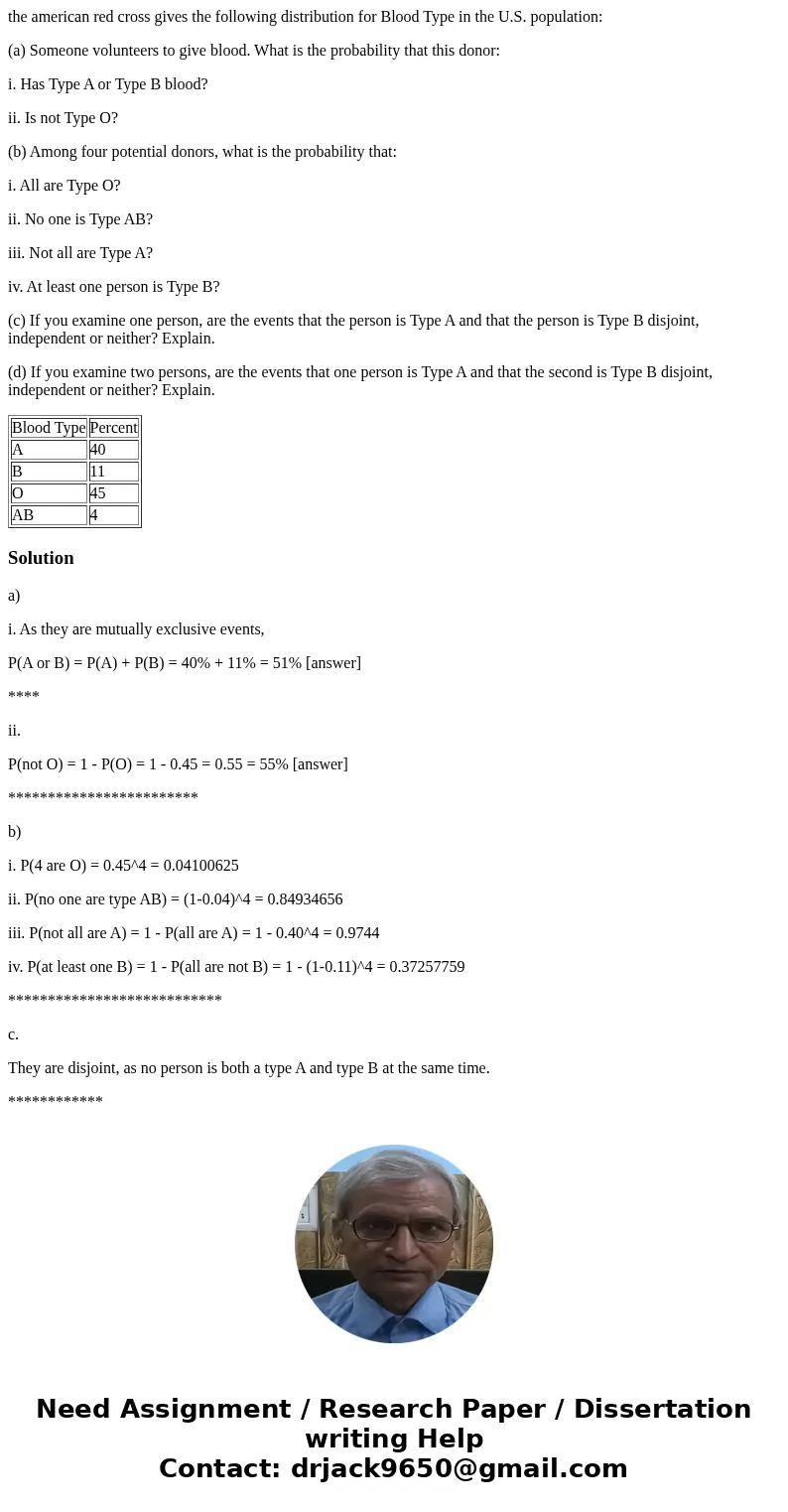the american red cross gives the following distribution for
the american red cross gives the following distribution for Blood Type in the U.S. population:
(a) Someone volunteers to give blood. What is the probability that this donor:
i. Has Type A or Type B blood?
ii. Is not Type O?
(b) Among four potential donors, what is the probability that:
i. All are Type O?
ii. No one is Type AB?
iii. Not all are Type A?
iv. At least one person is Type B?
(c) If you examine one person, are the events that the person is Type A and that the person is Type B disjoint, independent or neither? Explain.
(d) If you examine two persons, are the events that one person is Type A and that the second is Type B disjoint, independent or neither? Explain.
| Blood Type | Percent |
| A | 40 |
| B | 11 |
| O | 45 |
| AB | 4 |
Solution
a)
i. As they are mutually exclusive events,
P(A or B) = P(A) + P(B) = 40% + 11% = 51% [answer]
****
ii.
P(not O) = 1 - P(O) = 1 - 0.45 = 0.55 = 55% [answer]
************************
b)
i. P(4 are O) = 0.45^4 = 0.04100625
ii. P(no one are type AB) = (1-0.04)^4 = 0.84934656
iii. P(not all are A) = 1 - P(all are A) = 1 - 0.40^4 = 0.9744
iv. P(at least one B) = 1 - P(all are not B) = 1 - (1-0.11)^4 = 0.37257759
***************************
c.
They are disjoint, as no person is both a type A and type B at the same time.
************
d.
Neither. Those two persons can be relatives, and their blood types can be related.

 Homework Sourse
Homework Sourse